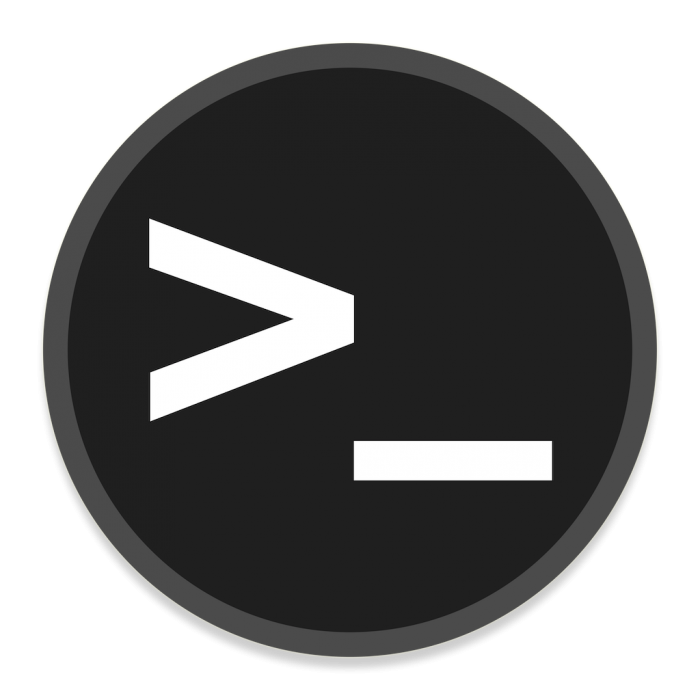I think creatinine is an essential dietary requirement for cats anyway. I need to go check, but I think it’s one of those things they put in “food” cat food, as opposed to cast treats, which aren’t nutritionally complete.
𝕽𝖚𝖆𝖎𝖉𝖍𝖗𝖎𝖌𝖍
🅸 🅰🅼 🆃🅷🅴 🅻🅰🆆.
𝕽𝖚𝖆𝖎𝖉𝖍𝖗𝖎𝖌𝖍 𝖋𝖊𝖆𝖙𝖍𝖊𝖗𝖘𝖙𝖔𝖓𝖊𝖍𝖆𝖚𝖌𝖍
- 24 Posts
- 2.82K Comments

 1·18 hours ago
1·18 hours agoI can believe it, and I really do hope it has an impact. After this election, I’m doubly pessimistic about progressive outcomes.
“I use Arch, BTW” is so gauche. Now, we mention Arch in an off-hand way, the way you mention your yacht, or how absurd the taxes on your third home are, or how having two doctorates is becoming so common.
Subtle boasting is the “in” thing.
Thanks! Let us know when you’re ready for issues; until then I’ll assume you’re just plugging away.
2nd Factorio and Factorio Space Age. Once you get your key (which doesn’t require Steam) there’s even a package in AUR for installing it and keeping it updated on Arch.

 172·22 hours ago
172·22 hours agoHaitian workers have revitalized Springfield’s economy, and their departure could severely impact local businesses and neighborhoods.
Sounds like wishful thinking, but I certainly hope so. I hope people there can’t get the services they need because the rednecks don’t want you do the jobs the Haitians were doing.
But, probably not.
Sarcasm noted!
Don’t you want some free QA? I don’t program in Rust, so pas de jugement on code quality!
That’s the Big Lie of Rust: the implication that memory safety prevents core dumps. I’ve had plenty of Rust apps hard crash on me; maybe they weren’t memory-access related, but they were crashes nonetheless.
In any case, my offer stands; I’ve been desperate for a TUI Lemmy client, and I really will submit decent tickets once you ask for them… or just quietly sit on them until you’re ready.
Nope, just ignorance!
Neither. I honestly found mainly references to Zelda when I went looking, and thought the IRL ones were made based on the game.
The app must have simulated the game instrument, which had some sort of sustaining reverb. However, that wikipedia article is fantastic! There are multi-chambered ocarinas, which would support chords, which recorders don’t; that’s cool!
I honestly didn’t know there was a real version first!
Where is it? I write great bug reports.
Me.
My sister showed up at one Christmas with an Ocarina app on her phone. It was really cool; I’d never played Zelda nor understood the relationship, so I thought it was a real instrument and spent some time in a Zelda rabbit hole.
Still haven’t played the game, and I still wish there was a real instrument that sounds as cool as that app. The real difference between that and a recorder is the reverb; a real ocarina would have to have some difference sound-making mechanism than a whistle; there’d have to be some vibrating component, like in a harmonica.

 6·2 days ago
6·2 days agoI love this comment.
My related anecdote is that I studied Aikido for many years, and there’s a lot of woo-woo in it. Energy, and Ki and whatnot. At one point (I was taking physics at the time) I realized that Aikido of all about directing momentum and force, and force as levers on body parts, and that you could probably calculate all of the various ideal angles for maximum conservation of momentum, and angles for balance points… and I realized that all of the woo-woo was a simplification of all of this that allows people to think about all of these things in real time and intuitively, rather than getting locked up in the theory.
I doubt that was the process and intention of the inventor, and a lot of practitioners believed in Ki or Chi or magic juice… but it’s all just physics boiled down to something people can easily visualize. And, yes, the problems start when people begin believing the magic juice, and start proclaiming that they can influence someone’s chi from a distance, or some shit. That’s a far cry from: if I bend your wrist this way, it’s incredibly painful and you’re going to fall over to stop it, or break your wrist.

 15·2 days ago
15·2 days agoAlready done.
I mean, you have to use it to get software; and if you’re submitting patches to other people’s software; and I have inherited maintenance of a popular project that would just confuse a ton of people, including several distros, if I moved it. But I never create projects in github anymore. Sourcehut has been great.
Yes! Hyphens and “+” are also legal, and while most will accept a dash, many don’t allow ‘+’. But it’s explicitly allowed in the spec!
God, the French. My friend has two first names, two middle, and thankfully only one surname.
So she writes 4 names? Does she put her maiden and married names both in the “surname” field? Or middle and maiden together in the “middle name” field?

 3·2 days ago
3·2 days agoThank you!

 4·2 days ago
4·2 days agoAll of the silos are in rural areas; those are mostly known and definitely first-strike targets. Cities need very few nukes to take out individually. Nowhere will anyone be rebuilding from the ashes. If the war is limited and nuclear winter doesn’t make the entire planet uninhabitable, the only places with a chance of surviving are the undeveloped countries. No developed country will be habitable.
Nuclear fallout is a bitch.

 4·2 days ago
4·2 days agoAs Linux is a multi-user system, stuff you install can either run a system process, or a user process. Most other comments are assuming you installed a process that’s running as a user. On Arch, this could either be an autostart process (which is desktop agnostic) or something attached to Gnome or KDE’s startup.
On Arch,
systemdcontrols system services. There are two key CLI commands for working with systemd (and some GUIs, but you’ll have to find those). The first issystemctl, and the second isjournalctl. The second gets you logs. The first controls services.systemctl statuswill give you an overview of all the services on your system.sudo systemctl stop <service name>will temporarily stop a service;start ...starts it again.disable ...will stop it from starting when you reboot – this does not stop the service, it only prevents it from being started again in reboot. As you’ve guessed,enable ...re-enables the service.status ...gives you a status for the process, and the last few lines of the log for it.systemdservices can also be run at the user level; the commands are all the same, but you add--userevery time to control the user services.journalctl -xegives you a system log since boot. You can also look at logs for previous boots, look at logs only for a single process (-u <servicename>), look at user processes (same--userargument), tail a log to watch new messages roll in (--tail) and a bunch of other stuff.Systemd also controls scheduled jobs (that used to be handled by cron) with timers. Really, most Linux distros these days should be known as systemd/Linux.
I suspect what you’re looking for is
sudo systemd disable <service>, but if it’s a user processes, check~/.config/autostartand your desktop config tool section for auto-start settings.It will help if you can say which desktop you’re using (Gnome? KDE? LXDE? Or just a window manager?) and what the package is. If you give the package name, we can explain exactly how to disable it. Otherwise, you have the hodge-podge of answers below.

















Apes together strong.
And so it begins. See you all in the human pens!